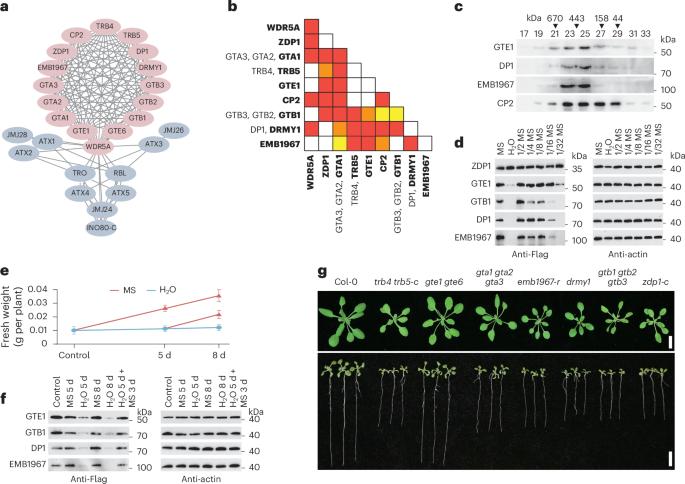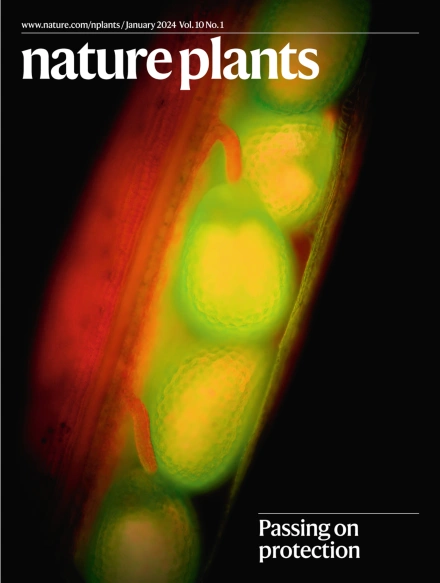营养驱动的TOR信号控制染色质相关复合体,协调植物生长和逆境耐受性。
IF 13.6
1区 生物学
Q1 PLANT SCIENCES
引用次数: 0
摘要
雷帕霉素激酶的保守靶点(TOR激酶)通过整合真核生物的营养和环境信号,作为生长的主要调节剂。然而,TOR如何影响染色质仍然知之甚少。在这里,我们在拟南芥中鉴定了一个多亚基复合物,称为染色质相关生长复合物(CACG)。我们的研究结果表明,在营养丰富的条件下,活跃的TOR激酶增强了CACG mRNA的翻译,这是由富含嘧啶的基序在其5'非翻译区域促进的。CACG组分共同占据组蛋白乙酰化标记的应激反应基因,抑制其转录以促进生长。相反,在营养缺乏的条件下,失活的TOR减少了CACG mRNA的翻译,减轻了应激反应基因的转录抑制,导致胁迫耐受性增加,但生长受损。这些结果表明,CACG复合物作为一种关键的营养应答转录调节剂,以tor依赖的方式协调植物生长和胁迫耐受性。本文揭示的分子机制有助于开发能够在不利环境中茁壮成长的高产作物。本文章由计算机程序翻译,如有差异,请以英文原文为准。

Nutrient-driven TOR signalling controls a chromatin-associated complex for orchestrating plant growth and stress tolerance
The conserved target of rapamycin (TOR) kinase acts as a master regulator of growth by integrating nutrient and environmental signals in eukaryotes. However, how TOR influences chromatin remains poorly understood. Here we identified a multi-subunit complex in Arabidopsis thaliana, termed the chromatin-associated complex for growth (CACG). Our findings indicate that under nutrient-rich conditions, active TOR kinase enhances CACG mRNA translation, which is facilitated by pyrimidine-rich motifs in their 5′ untranslated regions. CACG components co-occupy stress-responsive genes marked by histone acetylation, repressing their transcription to promote growth. Conversely, under nutrient-deficient conditions, inactive TOR reduces CACG mRNA translation, relieving transcriptional repression of stress-responsive genes and leading to increased stress tolerance but impaired growth. These results indicate that the CACG complex acts as a critical nutrient-responsive transcriptional regulator that is required for coordinating plant growth and stress tolerance in a TOR-dependent manner. The molecular mechanism revealed here could aid in developing high-yield crops capable of thriving in adverse environments. A chromatin-associated complex, which is dynamically regulated by TOR kinase at the translational level, functions to suppress the transcription of stress-responsive genes marked by histone acetylation, thereby coordinating plant growth and stress tolerance.
求助全文
通过发布文献求助,成功后即可免费获取论文全文。
去求助
来源期刊

Nature Plants
PLANT SCIENCES-
CiteScore
25.30
自引率
2.20%
发文量
196
期刊介绍:
Nature Plants is an online-only, monthly journal publishing the best research on plants — from their evolution, development, metabolism and environmental interactions to their societal significance.
 求助内容:
求助内容: 应助结果提醒方式:
应助结果提醒方式:


